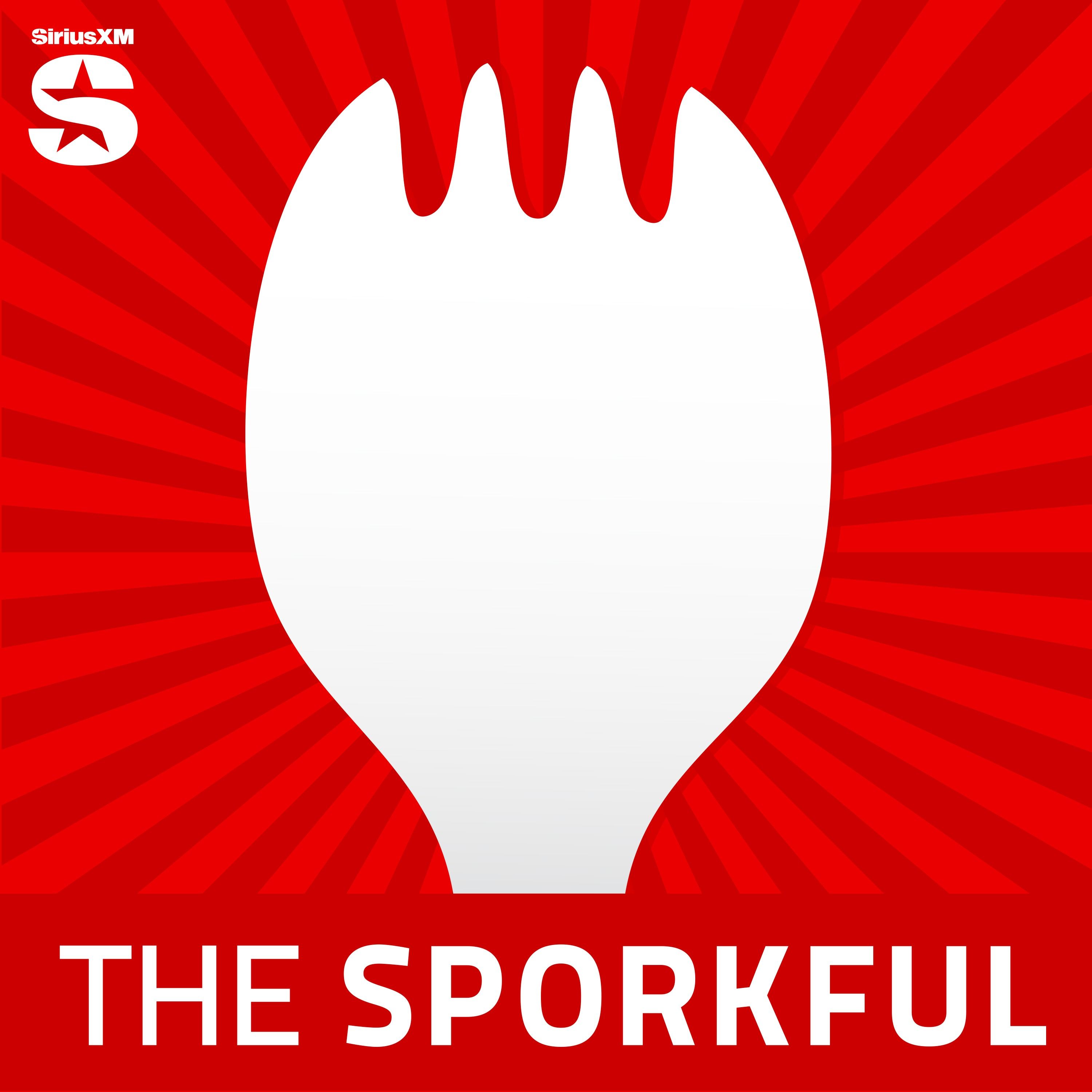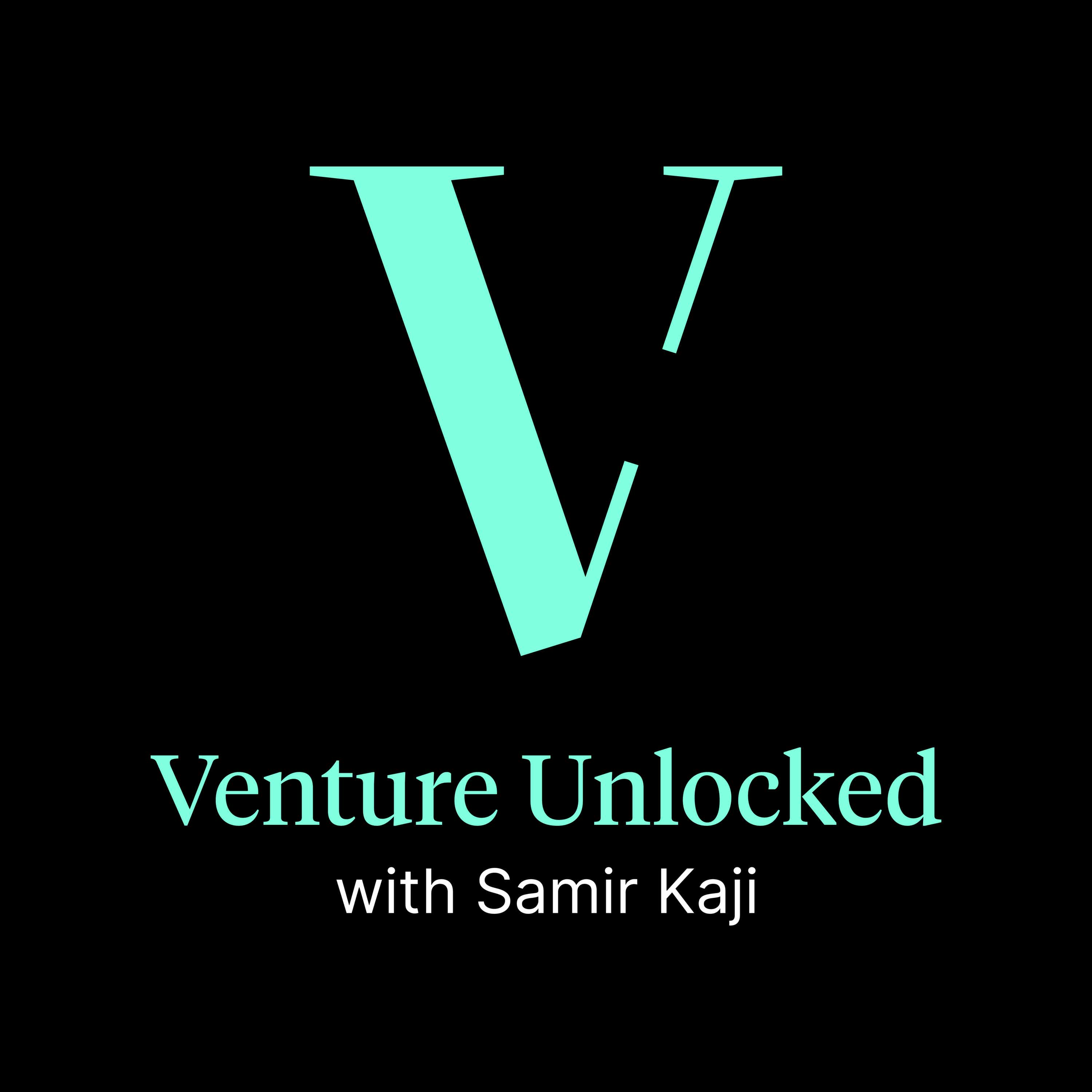.png)
Founder's Fridge
Founder's Fridge is the podcast where food and entrepreneurship collide.
Each week, we talk to startup founders about what is in their fridge and what that reveals about how they work, think, and build. From protein shakes and energy bars to takeout boxes and grocery-store staples, the meals they choose tell a story.
This business podcast is not just about food. It is about habits, routines, and the human side of startup life. As our guests share what fuels them through long days and late nights, they also reflect on decision-making, resilience, creativity, and the challenges of growing a company.
Whether it is a smoothie before a pitch or cold pizza during a crunch, these stories give a unique look into the real lives of founders. The fridge becomes a window into how they balance chaos, structure, and everything in between.
If you are curious about what drives today’s entrepreneurs, Founder's Fridge offers a fresh, personal perspective. It is a show about food, business, and what it takes to keep going.
Founder's Fridge
Episode 5: Wild Fruit and the Super App Dream with Arbër Kadia, Co-founder of Patoko
What do selling wild fruit in Albania and building a global tech company have in common?
In this episode of Founders Fridge, host Heidi Knoblauch sits down with Arbër Kadia, Co-founder of Patoko, to talk about growing up in a resourceful family, learning entrepreneurship through necessity, and turning that same creativity into a company building a “super app” for everyday life.
Arbër grew up in communist Albania, where his grandfather taught him how to work with what you have—and his grandmother taught him how to make it taste good. From selling fruit at an open market as a kid to cooking for ten roommates in college just to skip paying for food, Arbër’s story is about hustle.
Arbër talks about the invention behind survival cooking, the patience behind good eggplant casserole, and the dream of making life simpler through tech built in Tirana and designed for the world.
Listen to hear:
- How Arbër learned business by selling wild fruit as a child
- The story behind Patoko and its vision for a connected daily life
- What Albanian food taught him about care and craft
- Why greasy burgers are his comfort food on tough days
- What’s actually in his fridge (feta, salami, and too many avocados)
Subscribe to Founders Fridge for more stories about the meals that feed founders and the habits that hold everything together.
Check out our Substack!
Heidi: Hi Arbër, it’s awesome to have you on Founders Fridge!
Arbër: Hi there! Thank you so much. Excited to be here — it’s going to be great.
Heidi: So, can you tell me a little bit about what you’re building?
Arbër: We’re building something that many people call crazy. We’re entering the race to build a service aggregator — or the dreaded term, super app. Basically, it’s an app that does everything: essential services, payments, loyalty, gamification, mobility booking, your hairdresser, a cleaner, a restaurant table — all in one place. That’s what we’re building.
Heidi: Amazing.
Arbër: It’s called Patoko. Our mission is simple: to make people happy. By offering fantastic service, we hope to bring happiness to our users.
Heidi: That’s beautiful. The way I handle what you’re describing is super manual — a lot of human involvement. I’ve got a shared to-do list, try to delegate tasks — it’s kind of a mess.
Arbër: Exactly! That’s the problem. There’s a lot of fragmentation. You have to book your taxi in one app, order food from another, track rewards elsewhere — it’s inefficient. We believe it’s time to bring all of that into one place. This model has already been proven in Asia, the Far East, and parts of Europe and the Middle East with platforms like Yandex. The rest of the world is catching up, and we want to be the ones to bring it to the West.
Heidi: When did you start building the company?
Arbër: We like to say we started dreaming in June. We began building in July, and within six months, we had our MVPs ready for both iOS and Android. We went to market in January.
Heidi: Is this your first venture? When did you know you were an entrepreneur?
Arbër: This is my first tech company, yes. But I’ve always been entrepreneurial. When I was young, my dad told me and my brother that if we wanted money, we had to work for it. My grandfather, a retired army general, used to collect wild fruits. Instead of selling cookies like other kids, we sold those fruits in the town square. That was my first sales lesson!
Heidi: Where did you grow up?
Arbër: I grew up in communist Albania — the “North Korea of Europe,” as we used to joke. Life was very limited; we didn’t have many essentials the rest of the world took for granted. After the 1990s, I earned a scholarship to study in the UK, where I spent eight years — and one more year abroad as part of an exchange program. Eventually, I returned home because I loved the weather, the food, and wanted to set roots here.
Heidi: And you’re building the company in Albania?
Arbër: Yes, we started in Albania because it’s home and close to our first customers. But we’re a distributed team now, with members in the U.S., Canada, Albania, and Lithuania. We’re also planning expansion into Montenegro and Kosovo.
Heidi: What was it like growing up in communist Albania, especially around food?
Arbër: Food was scarce. I remember waiting in line for bread, soap, even kerosene. We sometimes got Hungarian chickens with blue stamps — we thought they were delicacies! My grandparents were from a rural area, so they were creative in finding good food. Our meals were simple — homemade pastries, beans, vegetables — a peasant’s diet, but nutritious and full of love.
Heidi: Did your family eat together?
Arbër: Always. Meals were central to family life. We often had visitors, and everyone sat together outside. Preparing food was a big communal event — my grandmother and several neighbors would gather to make pastries from scratch. Those meals lasted hours.
Heidi: When did you go to the UK?
Arbër: In 2000, when I was 17. I attended boarding school, where meals were quite formal — we had a head table and others organized by age.
Heidi: I went to boarding school too! We had to check in for breakfast or get assigned breakfast duty. Did you have anything like that?
Arbër: No breakfast duty for us! But I did take a cooking class from an Italian lady. Breakfast was self-serve — baked beans, sausages, typical British fare. Lunch and dinner were served by staff, which felt surprisingly homey.
Heidi: Did you go home for the holidays?
Arbër: Most years, yes. But one year, my visa wasn’t renewed, so I stayed with Tamazin Day-Lewis — Daniel Day-Lewis’s sister. She’s a renowned British chef, and that Christmas was incredible.
Heidi: What was that meal like?
Arbër: Completely different from what I knew in Albania. In Albania, we show abundance by covering the whole table. Tamazin’s dinner was elegant and restrained — just a slice of turkey, Brussels sprouts, and all the trimmings. It was perfect.
Heidi: What’s your relationship with food now?
Arbër: I love food, especially when I have time to slow down and enjoy it with my family. I love Italian, Greek, and Albanian cuisines — they feel close to home. But when I’m working, I just eat whatever’s available, which isn’t ideal.
Heidi: What does that look like day to day?
Arbër: Breakfast is usually a croissant or donut. Lunch might be a burger from an American diner or sushi from a Japanese place down the road. It’s more about convenience than planning.
Heidi: Do you cook?
Arbër: I used to, a lot. When I was a student, I cooked for ten people in my house — our deal was that if I cooked, I didn’t have to pay for food! These days I cook occasionally, mostly grilled meats like chicken or goat.
Heidi: Do you follow recipes?
Arbër: Not really. I cook from experience — though every once in a while, I cheat and look up something online.
Heidi: Are there Albanian recipes you’ve carried with you?
Arbër: Yes. My grandmother’s casseroles are my favorite. One dish, imam bayildi, is eggplant with caramelized onions, herbs, and minced beef. The Albanian version has a certain sourness and balance that takes experience to perfect.
Heidi: How does Patoko connect with food?
Arbër: We’re helping people discover good food faster. Through loyalty programs, we encourage restaurants to offer discounts and reward returning customers. We’re also integrating delivery logistics so meals arrive hot and fresh — no cold pizza!
Heidi: Do you live to eat or eat to live?
Arbër: It depends on the hour! When I’m deep in “startup mode,” I eat to live. But when I’m relaxed, I absolutely live to eat. My wife helps me find that balance.
Heidi: What do you eat when things are going really well?
Arbër: Lebanese or Syrian food — I love the spices, chickpeas, and eggplant dishes. Otherwise, I default to Italian, Greek, or Albanian seafood.
Heidi: And when things aren’t going so well?
Arbër: A big, greasy American burger — that’s my comfort food.
Heidi: I love that. I used to own a restaurant, and now cooking feels like work. Luckily, my wife loves to cook, so I get incredible meals at home without lifting a finger.
Arbër: You’re very lucky!
Heidi: I know! So — same question back to me — I definitely eat to live, but not in the healthy way. I’ll eat whatever’s in front of me. If it’s not visible in the fridge, I’ll forget it exists.
Arbër: (laughs) I completely understand that.
Heidi: What’s in your fridge right now?
Arbër: Feta cheese, avocados, Italian salami, a bunch of greens — and, of course, more cheese. Always cheese.
Heidi: Are you cooking tonight or ordering in?
Arbër: Probably takeout, depending on how late I finish work.
Heidi: Fair enough. Where can listeners find you and learn more about Patoko?
Arbër: You can find us across all major platforms — LinkedIn, Twitter, Instagram — under Harbor Idea. And if you ever want to talk about Albanian food, I’m your guy.
Heidi: Perfect. And when you’re in town, dinner’s on us.
Arbër: Deal. Thank you so much for having me.
Heidi: Thank you, Arbër. This was wonderful.
Podcasts we love
Check out these other fine podcasts recommended by us, not an algorithm.

The Dinner Plan
Maggie Hoffman
Food Friends: Home Cooking Made Easy
Food Friends
Home Cooking
Samin Nosrat & Hrishikesh Hirway
The Sporkful
Dan Pashman
A Hot Dog Is a Sandwich
Mythical
Your Mama’s Kitchen
Higher Ground
Venture Everywhere
Everywhere Ventures
The Recipe with Kenji and Deb
Deb Perelman & J. Kenji López-Alt
Startup Diaries
Pivotal Conversations
The Foundr Podcast with Nathan Chan
Foundr Media


